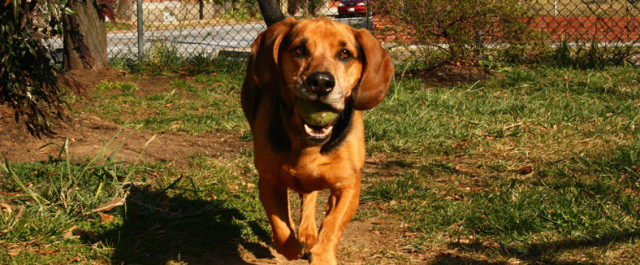Amy Sawyer
Recently, I sat bawling in a small waiting room of an emergency vet after my basset hound mix collapsed at my feet. Over the course of about 12 hours, my dog had faded from her usual perky self to a comatose state. Earlier that day, our regular veterinarian rushed me out of her office, sending me on an excruciating drive to the emergency vet with my dog whimpering at every speed bump and pothole. From the news that she might not make it to the sleepless hours waiting for updates, this was one of the most intense emotional experiences in my recent memory. As any pet owner can attest, losing or almost losing your constant companion wreaks havoc on your emotions. It has been a few weeks, and it is still all I think about.
When I sat down to do some free writing, thoughts of my dog were all I could muster. How could I ignore the one thing weighing so heavily on my mind and heart? And yet the little voice of the critic came whispering in my ear: Don’t write about your dog. That’s not a serious literary topic. No one wants to read about someone else’s pet. It is like writing about your dreams, a big no-no.
To be sure, there are many dead dog poems that ooze sentimentality at the cost of good writing. Just google “dog sympathy poems” and steer clear of anything about a Rainbow Bridge or Paws in the Sand. And, truthfully, as much as I love my dog, I usually don’t want to read about yours. It difficult to get a reader to connect with your subject with the same emotional energy you connect with your pet.
A dead dog showed up in one of my poems a few years ago, and a well-intentioned workshop leader told me to scrap the poem because the dead dog territory has already been covered flawlessly by John Updike. In his poem “Dog’s Death,” Updike handles the death of his dog with a gritty account of the dog’s final hours. There is no shortage of emotion; he touches on the sadness, guilt, and pain of pet loss. Updike adds complexity to the sadness with a bit of playfulness that nears dark humor around such a depressing situation.
My poem was nowhere near Updike’s and perhaps I should have scrapped it. I did heed my workshop leader’s advice and read similar works to see how they handled a tough topic. There is great value in reading what has already been written about the same subject matter you are writing about. After all, no writer wants a copycat (pun intended) Marley & Me or The Art of Racing in the Rain. There was only one Marley; the literary world doesn’t need another.
But haven’t all life’s territories been covered before? Love, death, marriage, sex, kids, religion, race are all well-worn paths. Heck, even cats get some serious literary treatment (Check out Margaret Atwood’s “February” and Marge Piercy’s “The Cat Song” to get you started.) Just because a topic is difficult to cover well doesn’t mean that we should shy away from it. The critical element to making a pet poem good is making the leap from personal loss and love to universal loss and love. A little bit of distance and healthy perspective can help keep your writing from seeming one-dimensional and open your work up to a wider audience.
So, if you are going to write about your pets, perhaps it would be best to not write about your pets. Let yourself jump out of the immediate, intimate emotions and connect to something a little bigger. Carry strong emotions without being sentimental. Like Updike, add some grit, humor, bleakness, perspective, or crassness, anything to give the reader another angle to view the potential mushy subject matter.
And, for the love of dog, don’t include paw prints in the sand, on your heart, or anywhere else.
 Amy Sawyer is a poet residing in Washington, DC. She studied philosophy, religion, and poetry at Clemson University and completed her MFA in Creative Writing through Converse College. Amy’s work has been published in journals such as South Carolina Review, Louisiana Literature, Conclave Journal, and Chiron Review. Professionally, she managed an Adult Education GED program, and now she studies poetry while caring for her two young children. She is the Review Editor for South85 Journal.
Amy Sawyer is a poet residing in Washington, DC. She studied philosophy, religion, and poetry at Clemson University and completed her MFA in Creative Writing through Converse College. Amy’s work has been published in journals such as South Carolina Review, Louisiana Literature, Conclave Journal, and Chiron Review. Professionally, she managed an Adult Education GED program, and now she studies poetry while caring for her two young children. She is the Review Editor for South85 Journal.
